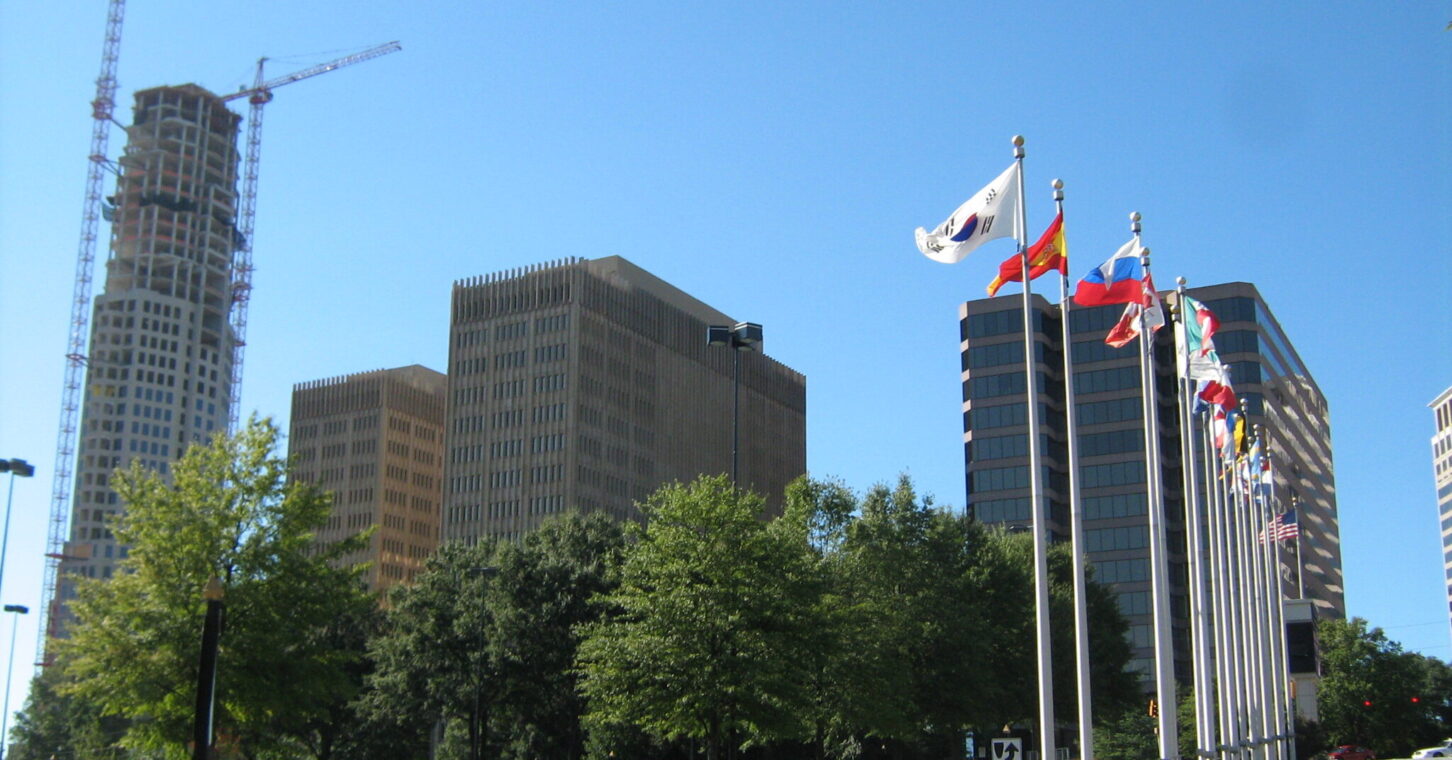
The Buckhead district, located in the northern part of Atlanta, represents about 20% of the city’s geographical area and population, containing approximately 108,000 residents.
This affluent area has a rich history dating back to the 19th century and has evolved significantly since its annexation by Atlanta in 1952. Known for its high property values, Buckhead also plays a vital role as a corporate and retail hub, contributing significantly to Atlanta’s revenue.
In fact, a debate over whether the Buckhead community should be allowed to separate from Atlanta came to a head during the 2023 legislative session when bills were introduced to allow a vote on creating “Buckhead City.” Although these bills were rejected by the Senate, the discussion endures and issues remain.
While not taking sides in the debate, the Georgia Public Policy Foundation has released a report which offers a fact-based assessment of issues facing Buckhead.
As the report explains, cityhood movements are not unusual around Atlanta, but they typically involve unincorporated areas striving to form their own governments. However, since it is already within Atlanta city limits, Buckhead’s situation presents unique challenges. The report addresses four key topics.
- Public Safety
The Buckhead cityhood movement was originally spurred by public safety concerns. High-profile local crimes and a nationwide crime wave in 2020 and 2021 raised doubts about the Atlanta Police Department’s effectiveness.
Despite recent improvements in crime rates, public safety concerns persist, especially related to shoplifting. To address these issues, the Georgia Department of Public Safety announced the opening of a new Georgia State Patrol post in Buckhead in September 2023, highlighting the commitment to improving public safety in the area.
- Land Use
Zoning changes proposed by the Atlanta City Council in 2021 also drew dissatisfaction from many Buckhead residents. These proposals aimed to increase density by allowing more accessory dwelling units, small apartment buildings and eliminating parking minimums.
The debate over zoning changes has continued into 2023, with the most notable instance being the approval of a “Special Interest District” (SPI-25) by the Atlanta City Council. This SPI restricts new development in Buckhead’s Tuxedo Park, highlighting the ongoing tension between those advocating for greater density and those concerned about preserving the character of historic neighborhoods.
- Taxation
Buckhead represents a substantial source of income for Atlanta, accounting for about 40% of the city’s total revenue and over half of its property tax revenue. However, many Buckhead residents question the return on their taxes paid. The high property taxes in Buckhead reflect its valuable real estate, with the median listing residential property value currently around $850,000.
A report from the Buckhead Coalition in 2021 revealed that Buckhead generated a total of $1.6 billion in state and local tax revenue. A significant portion of this revenue came from local property taxes, state income taxes, and retail sales taxes. This robust tax contribution underscores the vital role Buckhead plays in facilitating services and entities in Atlanta.
- Infrastructure
Buckhead residents have expressed concerns about neglected infrastructure, such as potholes, outdated MARTA stations, and undermaintained parks. They argue that they do not receive adequate services for the taxes they pay. The Atlanta Department of Transportation (ATLDOT) is responsible for infrastructure projects, including road maintenance.
However, ATLDOT’s extensive responsibilities, covering approximately 1,400 centerline miles of city streets, raise questions about the pace and priorities of repairs.
As the report concludes, the Buckhead cityhood issue is multifaceted, driven by concerns and interests from both sides. While the debate has generated numerous studies, initiatives, and emotional responses, it is essential to maintain a fact-based and holistic discussion. The economic impact of both remaining part of Atlanta and becoming an independent city must be considered, but so too must the non-economic issues, such as the future of Atlanta Public School students within Buckhead’s proposed city boundary.
No matter what the future holds for the Buckhead City proposal, a well-informed and contextualized discussion that considers the long-term implications is crucial.
